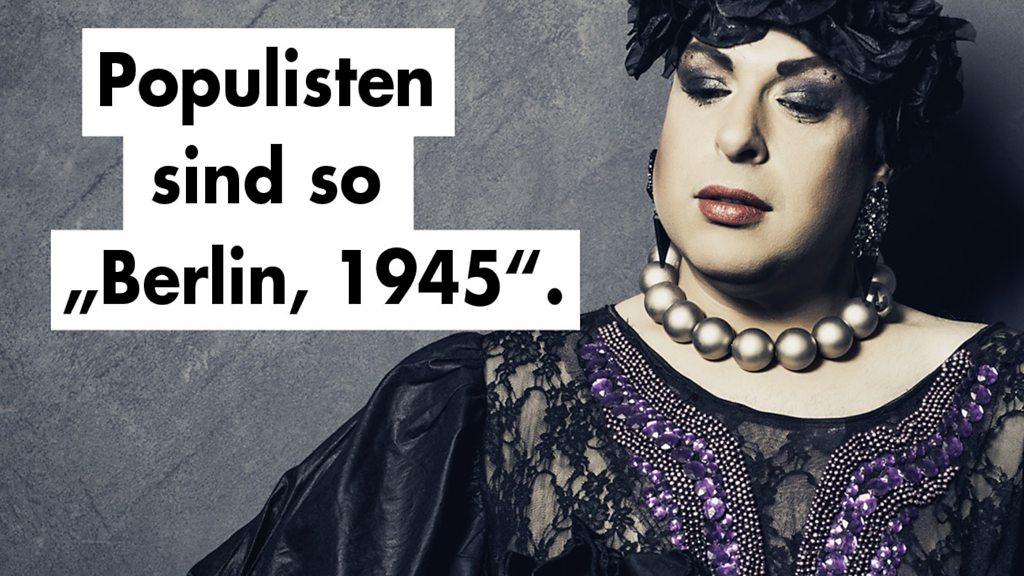Walter Lübcke: Far-right suspects in court over politician's murder
- Published
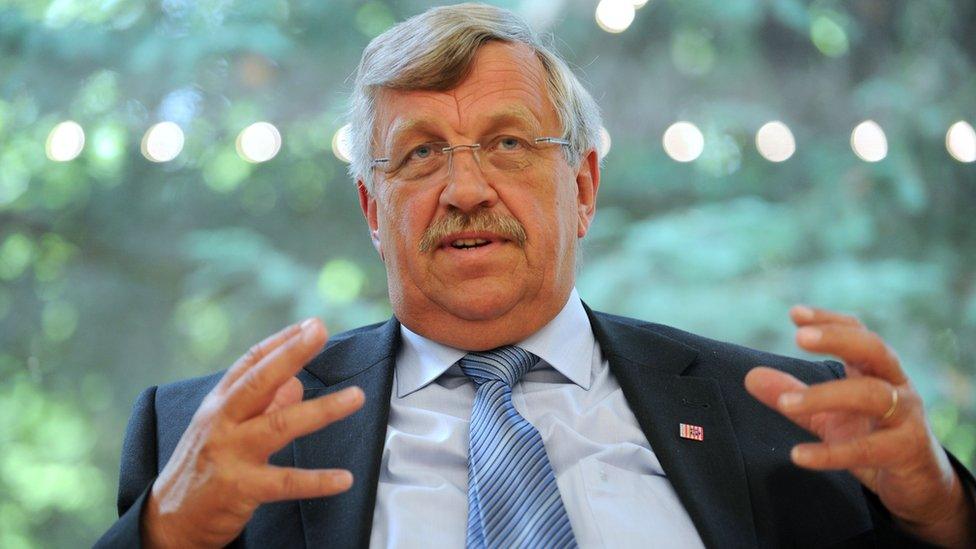
Walter Lübcke was shot in the head with a short-range weapon in June 2019
Two men have appeared in court over the murder of pro-migrant German politician Walter Lübcke.
The 65-year-old was shot in the head at close range in his garden in June last year.
Stephan Ernst is accused of murdering Lübcke, while another suspect identified as Markus H is accused of assisting him.
If proven, it would reportedly be the first far-right political assassination in Germany since World War Two.
Lübcke was the head of the regional council in the central German city of Kassel, known nationally for supporting Chancellor Angela Merkel's call to take in refugees in 2015.
Prosecutors say the suspect was motivated by "racism and xenophobia" when he drove to Lübcke's home. Ernst initially admitted to the murder but now denies the killing.
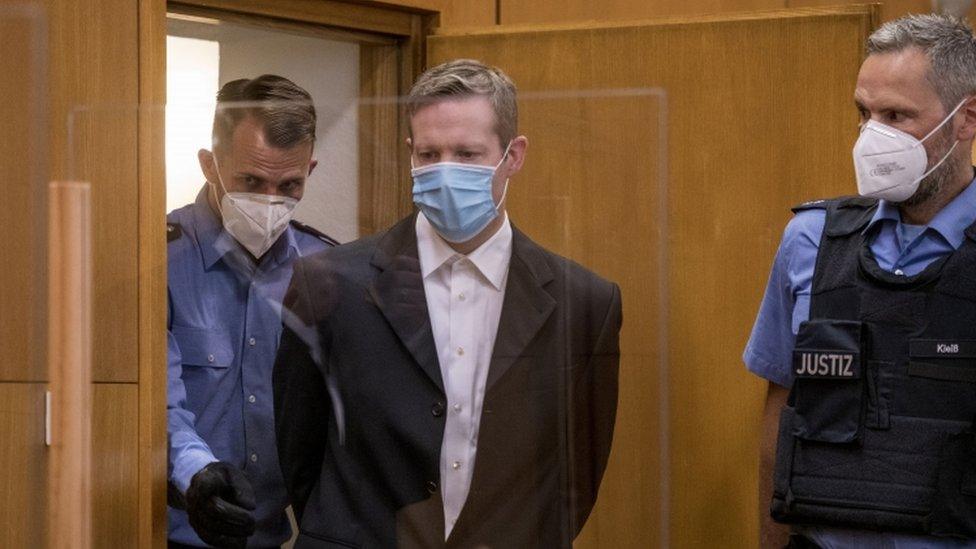
Stephan Ernst, centre, is accused of killing Walter Lübcke
German news agency dpa reports 200 journalists have been accredited to attend the trial in Frankfurt, although space is limited due to measures brought in to control the coronavirus outbreak.
A statement issued by Lübcke's wife and two sons - who are also attending the hearing - said: "Hatred and violence can have no place in our society.
"All of us who stand for a free democracy must not fall silent, but take a clear position."
What happened to Walter Lübcke?
Lübcke was a member of Mrs Merkel's centre-right Christian Democrats party (CDU). In 2015, he became a leading advocate for migrants' rights in his local area after Germany took in a million asylum seekers.
At a rowdy town hall meeting in October that year, he told audience members they had to stand up for Christian values. "Whoever does not support these values can leave this country any time, if he doesn't agree. This is the freedom of every German," he said.
He received death threats and was given personal protection soon after.
On 2 June 2019, Lübcke's body was found on the terrace of his home in the village of Istha. Police later announced he was shot in the head at close range.
Who are the suspects?
It is thought that both Stephan Ernst and Markus H attended the controversial town hall meeting in October 2015.
Prosecutors believe that after the speech, Ernst "increasingly projected his hatred of foreigners" onto the politician.
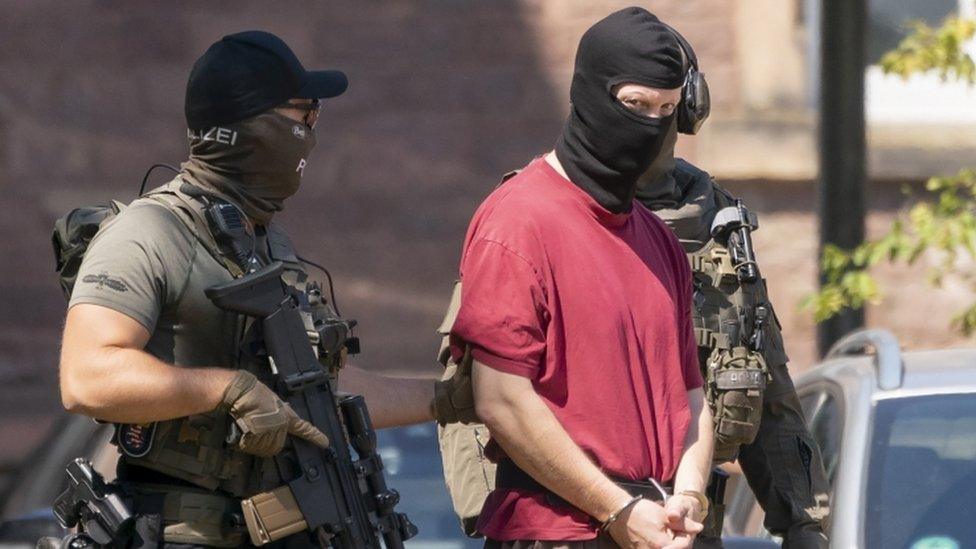
Stephan Ernst, centre, initially admitted to the murder but then retracted his confession
He allegedly began tracking Lübcke, and prosecutors say that between 2016 and 2018 he received weapons training from Markus H.
Ernst initially admitted to the murder but then retracted the confession, and said Markus H carried out the killing. However, while Markus H attended right-wing demonstrations with Ernst, prosecutors do not believe he knew of any solid plans to attack Lübcke and do not think he was present at the scene of the crime.
Investigators have also charged Ernst with attempted murder over the stabbing of an Iraqi asylum seeker in 2016.
Lübcke's murder shocked Germany, which has grappled with a rising tide of support for far-right politics in recent years. If a political motive of far-right extremism is proven, it would be the first such killing of a politician in modern Germany.
In October 2019 a gunman killed two people in the city of Halle after trying to enter a synagogue, and in February this year a suspected far-right extremist killed nine people in attacks on shisha bars in Hanau.
Angela Merkel joined the Jewish community for a vigil in solidarity in Berlin
- Published3 June 2019
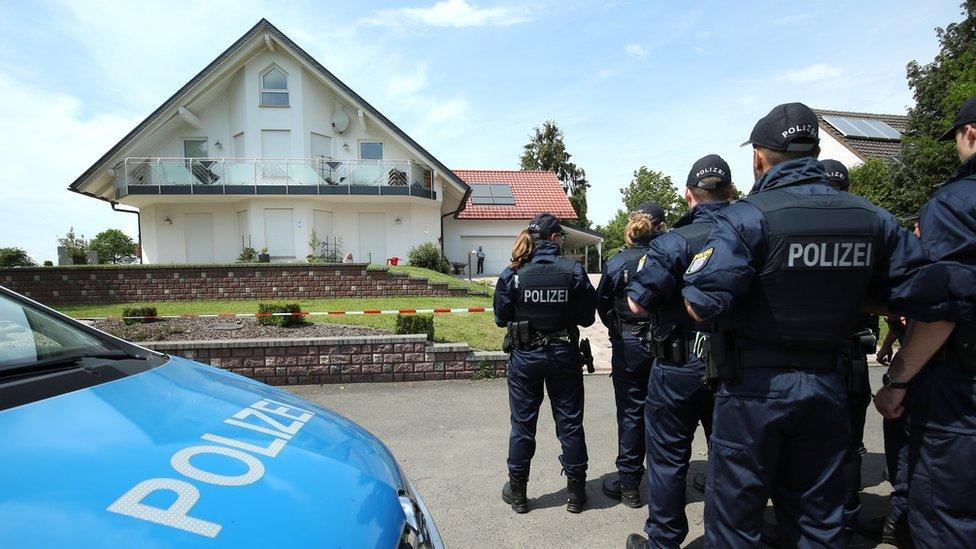
- Published6 February 2020
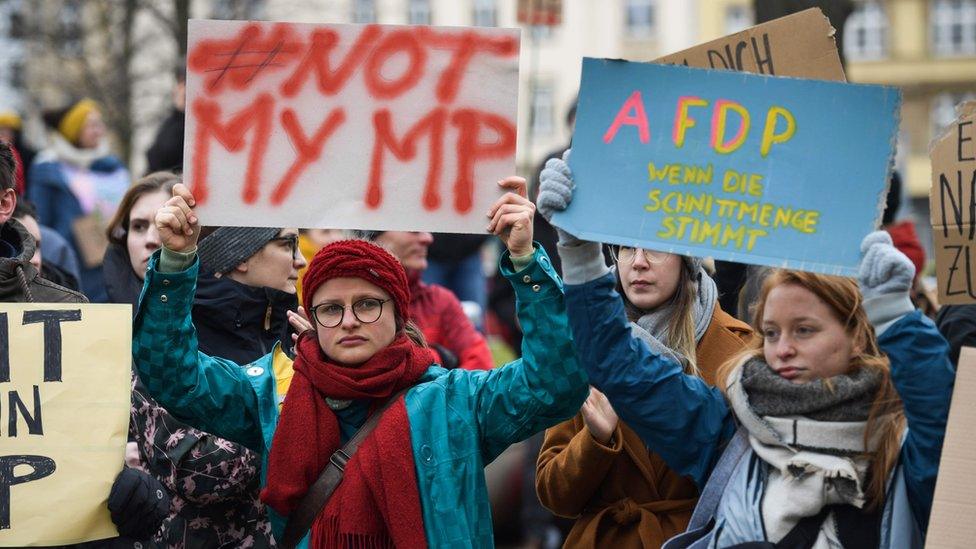
- Published13 November 2019

- Published7 September 2017
